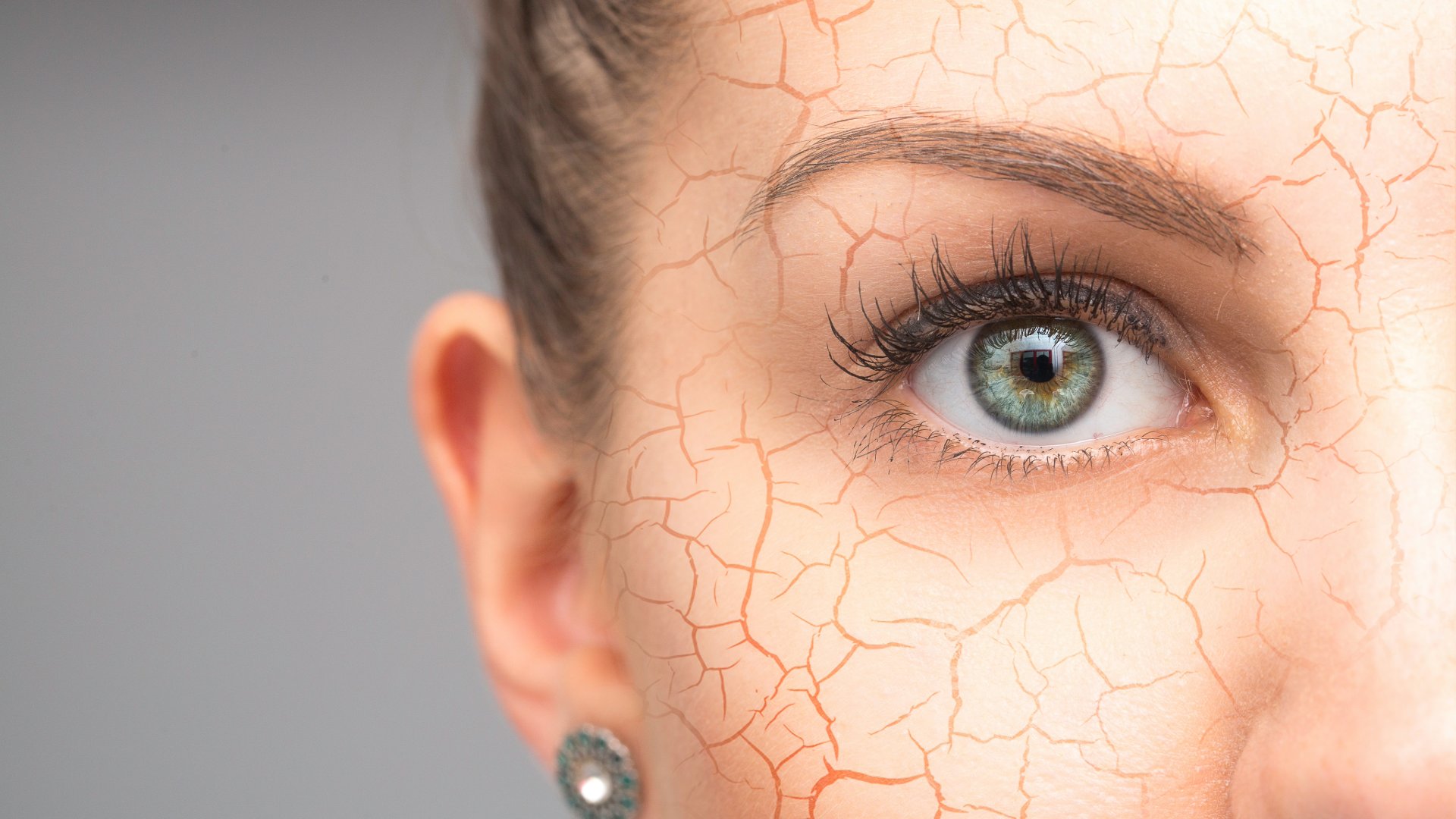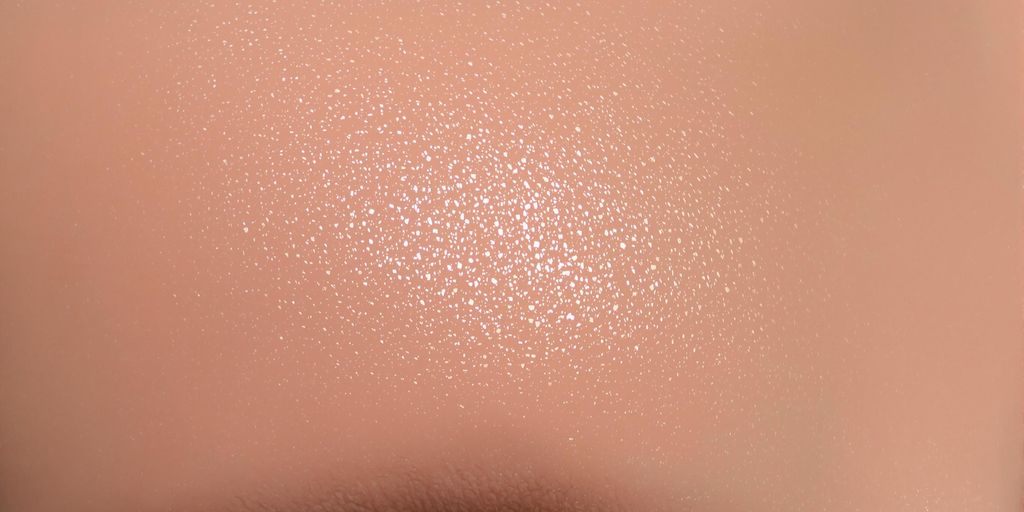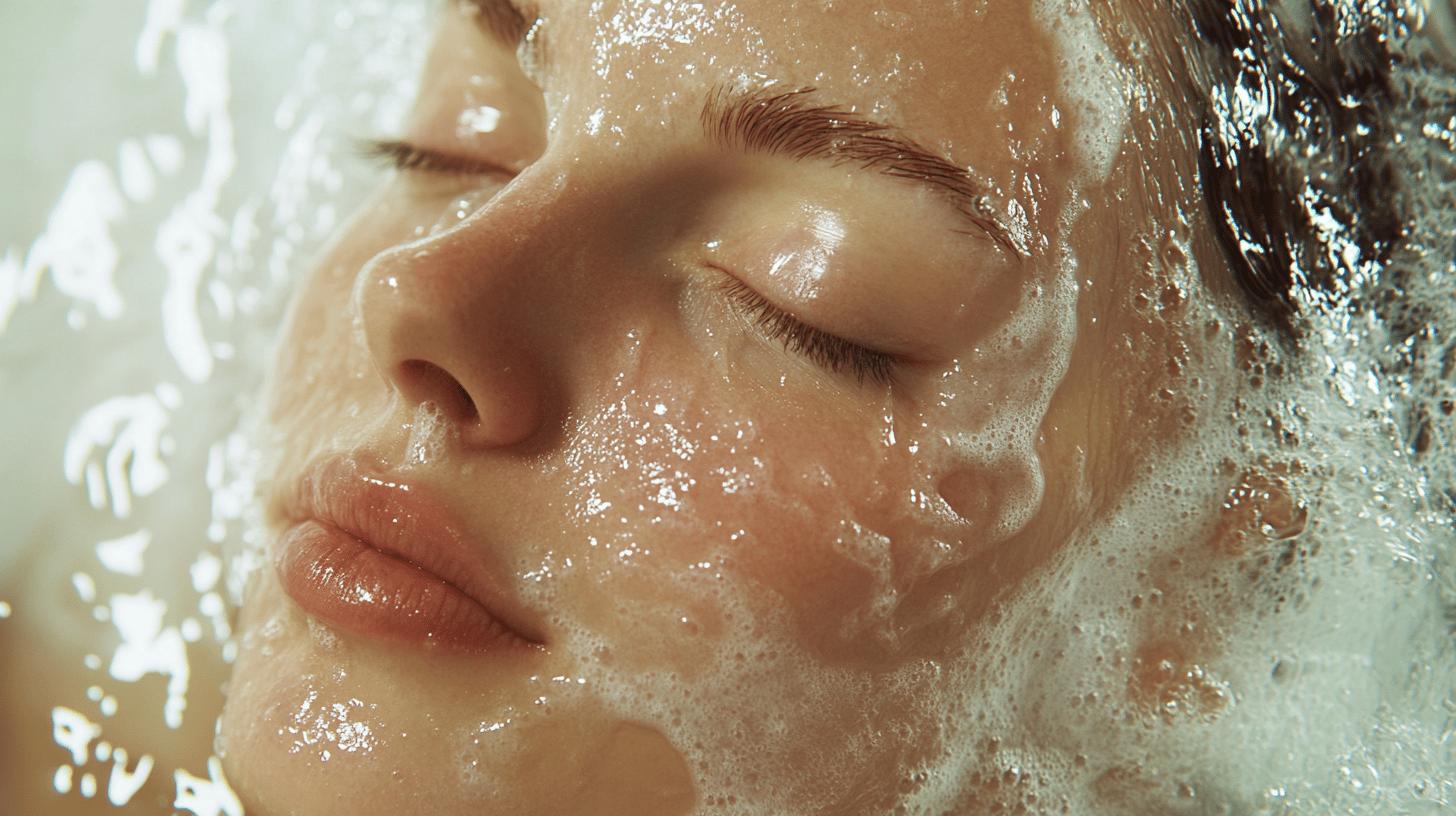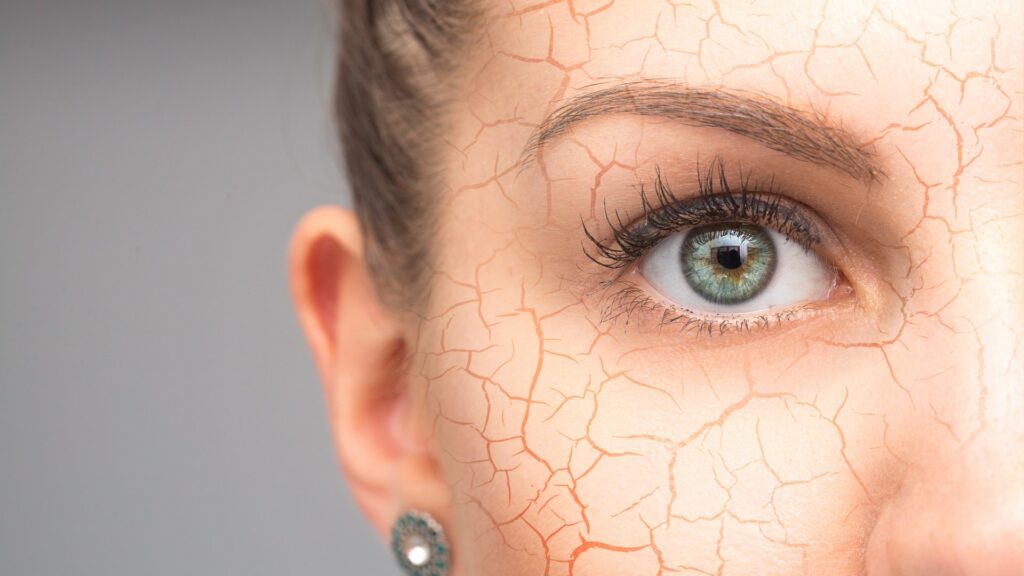Have you ever wondered why your skin feels tight, itchy, and lacks its usual glow, despite regular skincare? Dehydrated skin might be the hidden culprit. Imagine your skin as a plant; without enough water, it withers, losing its vitality. Recognising the signs of skin dehydration is pivotal to maintaining its health. This article will elucidate the top indicators that your skin needs hydration so you can restore its radiance and comfort. Dive in to discover if your skin is sending out distress signals and learn how to address them effectively.
Common Signs that Your Skin is Dehydrated
Dehydrated skin often manifests through a variety of symptoms that can affect its overall appearance and feel. One of the primary indicators is that the skin becomes flaky and sensitive, lacking its usual radiance. Itchy skin is a prevalent sign, usually caused by external factors such as wind and extreme temperatures. These elements can lead to tightness and flaking, making the skin uncomfortable. Increased sensitivity is another common symptom, resulting from a disrupted moisture barrier. This disruption can cause redness, itchiness, and irritation.
- Itchy Skin: Often caused by external elements like wind and extreme temperatures, leading to tightness and flaking.
- Increased Sensitivity: Occurs due to a disrupted moisture barrier, resulting in redness, itchiness, and irritation.
- Dull Skin: Caused by inadequate hydration, leading to poor cell turnover and the accumulation of dead skin cells.
- Fine Lines and Wrinkles: Appear as tiny, triangular lines when the skin is pinched, indicating dehydration.
Dull skin is another key sign of dehydration. This occurs because the skin lacks adequate hydration, leading to poor cell turnover and the accumulation of dead skin cells. The result is a lacklustre complexion that appears tired and aged. Additionally, fine lines and wrinkles may become more pronounced. These often appear as tiny, triangular lines when the skin is pinched, a clear indication that the skin is lacking sufficient moisture.
Understanding these signs can help individuals take the necessary steps to restore their skin’s hydration levels. By recognising these symptoms early, one can adapt their skincare routine to include more hydrating products and practices, thereby improving the overall health and appearance of their skin.
How to Tell if Your Skin is Dehydrated

Dehydrated skin, a condition characterised by a lack of water in the skin, can be caused by factors such as insufficient water intake and lifestyle choices. These may include a diet low in water-rich foods or exposure to central heating. Unlike dry skin, which is a skin type, dehydrated skin is a condition that can affect anyone, regardless of their skin type. Even those with oily or combination skin can experience dehydration. Common signs of dehydrated skin include dullness, tightness, itchiness, and the appearance of fine lines. Recognising these symptoms is crucial for taking appropriate measures to rehydrate the skin and restore its health.
One straightforward way to determine if your skin is dehydrated is by using the pinch test. This simple method involves gently pinching the skin and observing how quickly it returns to its normal state. If the skin does not bounce back immediately, it may be an indication of dehydration.
The Pinch Test
To perform the pinch test, follow these steps:
- Gently pinch a small area of your skin, preferably on the back of your hand or your cheek.
- Hold the pinch for a few seconds and then release.
- Observe how quickly the skin returns to its normal position.
If the skin takes longer than usual to snap back, this is a clear sign that it is lacking hydration. This test is a quick and effective way to assess your skin’s hydration levels and can help you take immediate steps to address any dehydration issues.
Facial Signs of Dehydration
Dehydrated skin often exhibits several tell-tale signs that are easy to identify on the face. One of the most common symptoms is itchiness, which results from the skin’s lack of moisture. This can lead to significant discomfort and even flaking in some cases. Tightness is another prevalent indicator, signalling that the skin is not retaining enough water. This tight sensation often accompanies an overall feeling of discomfort. Dullness is another major sign, where the skin lacks its usual healthy glow, often due to insufficient hydration. This lack of radiance can make the complexion appear tired and aged.
- Itchiness: A result of the skin’s lack of moisture, leading to discomfort and potential flaking.
- Tightness: Indicates that the skin is not retaining enough water, causing an uncomfortable tight sensation.
- Dullness: Occurs when the skin lacks a healthy glow, often due to inadequate hydration.
Understanding these symptoms is crucial for differentiating dehydrated skin from dry skin. While dehydrated skin lacks water, dry skin is characterised by a deficiency in natural oils. This distinction is essential for choosing the appropriate skincare routine. For instance, while both conditions benefit from hydration, dry skin also requires products that restore the skin’s natural oil balance.
To help your skin recover, it’s important to focus on a routine that restores moisture and radiance from the inside out. This includes not only topical treatments but also lifestyle changes such as increasing water intake and incorporating water-rich foods into your diet. By recognising and addressing the signs of dehydration, you can significantly improve the look and feel of your skin.
How to Differentiate Between Dry and Dehydrated Skin

Dry skin is a skin type characterised by insufficient natural oil production. This condition is often genetic and can be linked to hormonal imbalances or thyroid issues. People with dry skin may experience persistent roughness, flakiness, and itchiness. The lack of oil means the skin cannot effectively maintain its moisture barrier, leading to a constant feeling of tightness and discomfort. Dry skin requires treatments that focus on replenishing natural oils and strengthening the skin’s protective barrier.
In contrast, dehydrated skin is a condition caused by external factors such as weather, diet, and lifestyle choices. Unlike dry skin, which lacks oil, dehydrated skin lacks water. This can result from insufficient water intake, exposure to central heating, or a diet low in water-rich foods. Dehydrated skin can affect anyone, regardless of their skin type, including those with oily or combination skin. Symptoms often include dullness, tightness, and the appearance of fine lines, which are all indicative of the skin’s need for hydration.
Key Differences
- Cause: Dry skin is genetic and related to a lack of natural oils, whereas dehydrated skin is caused by external factors leading to a lack of water.
- Appearance: Dry skin appears rough and flaky, while dehydrated skin looks dull and lacks radiance.
- Treatment: Dry skin benefits from oil-based moisturisers that restore the skin’s barrier. Dehydrated skin requires water-based products and increased water intake.
- Skin Types: Dry skin is a specific skin type, whereas dehydration is a condition that can affect any skin type.
Recognising these differences is crucial for selecting the right skincare regime. Tailoring your routine to address either lack of oil or lack of water will significantly improve the health and appearance of your skin.
Initial Steps to Correct Dehydrated Skin
To address dehydrated skin effectively, it’s crucial to start by eliminating factors that exacerbate the condition. Avoiding caffeine and alcohol is essential, as these substances deplete the skin’s water content, making dehydration worse. Another helpful step is to use a humidifier, which adds moisture to the air and helps maintain your skin’s hydration levels. Additionally, steer clear of harsh face scrubs that can irritate the skin and further compromise its moisture barrier. These initial changes can make a significant difference in restoring your skin’s hydration.
- Use a gentle cleanser with lukewarm water.
- Apply an essence to help retain moisture.
- Incorporate a hyaluronic acid serum into your routine.
- Use a gentle exfoliant to remove dead skin cells.
Incorporating specific products into your skincare routine can also assist in rehydrating your skin. Using a gentle cleanser with lukewarm water helps maintain the skin’s natural oils while removing impurities. Applying an essence can further aid in retaining moisture, making it a valuable addition to your daily regimen. A hyaluronic acid serum is particularly beneficial, as it attracts and holds water within the skin, providing long-lasting hydration.
Aside from product choices, adopting lifestyle changes is equally important in preventing dehydration. Increasing your water intake and consuming water-rich foods, such as fruits and vegetables, can significantly impact your skin’s hydration levels. Selecting products that protect the skin’s outer layer, like Marine Flower Peptide Night Cream, can lock in moisture and enhance the skin’s barrier function. By combining these steps, you can effectively combat dehydrated skin and maintain a healthy, radiant complexion.
Professional Treatments for Dehydrated Skin
In-clinic treatments are ideal for severe cases of dehydrated skin that require more intensive care than at-home remedies can provide. These treatments are designed to deeply hydrate and rejuvenate the skin, addressing the root causes of dehydration and offering more immediate results.
Flawless.clinic provides advanced hydration treatments tailored to individual needs. Among their offerings are hydrafacials, which cleanse, exfoliate, and hydrate the skin using a specialised device. Microdermabrasion is another option, which removes dead skin cells and allows for better absorption of hydrating products. Additionally, tailored skincare plans are available to ensure a comprehensive approach to restoring skin moisture and health. These professional treatments can significantly enhance skin hydration, making the skin appear more radiant and revitalised.
Final Words
Identifying the common signs that your skin is dehydrated, such as itchiness, tightness, and dullness, is the first step to addressing the issue.
Understanding how to tell if your skin is dehydrated through tests like the pinch test can provide clarity.
Recognising facial signs, differentiating between dry and dehydrated skin, and implementing proper skincare routines are crucial.
Initial steps include avoiding substances that deplete moisture and using specific products to rehydrate.
For severe cases, professional treatments offer effective solutions.
By taking these steps, you can vastly improve skin hydration and overall health.
FAQ
What are the key characteristics of dehydrated skin?
Dehydrated skin feels flaky, sensitive, lacks radiance, and may show fine lines and wrinkles.
How can I identify signs of dehydration on my face?
Signs include tightness, dullness, rough texture, and fine lines that are more noticeable when pinched.
What causes dehydrated skin?
Insufficient water intake, lifestyle factors such as diet and exposure to central heating, and harsh weather conditions.
How to treat dehydrated skin effectively?
Avoid caffeine and alcohol, use a humidifier, and follow a skincare routine with gentle cleansers, essences, hyaluronic acid serums, and moisturisers.
How can dehydration affect my skin and scalp?
Dehydration can cause itchy skin, tightness, flaking, and an overall lack of comfort on both skin and scalp.
What does dehydrated skin look like?
Dehydrated skin often appears dull, tight, flaky and may exhibit fine lines and an uneven texture.
How to determine if you are dehydrated by examining your skin?
Pinch the skin; if it doesn’t quickly return to its normal state, it may indicate dehydration.
How do you differentiate between dry and dehydrated skin?
Dry skin lacks oil and is a genetic condition, while dehydrated skin lacks water and is caused by external factors like diet and weather.
What immediate steps can be taken to fix dehydrated skin?
Use a gentle cleanser, apply a moisture-locking essence, use hyaluronic acid serum, and avoid harsh face scrubs.
Are there professional treatments for dehydrated skin?
Yes, in-clinic treatments like hydrafacials and microdermabrasion can restore moisture and health to severely dehydrated skin.







